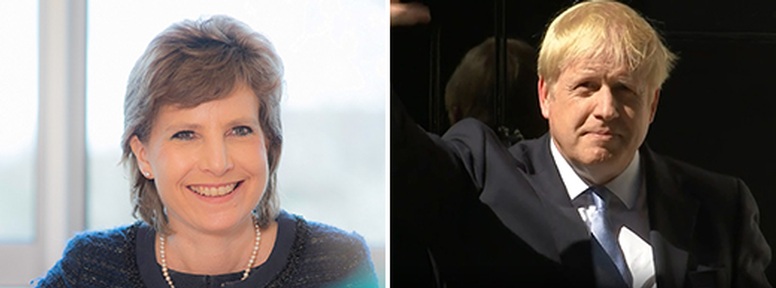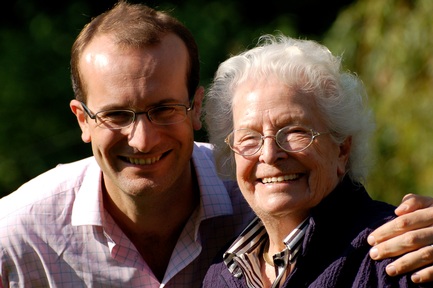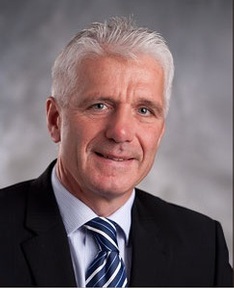Profile: 'If I had my way, I would take healthcare out of politics – so it isn’t affected by changes in Government,' says care provider boss
By her own admission, Sandie Foxall-Smith leads ‘from the front’ and does not hesitate to speak out. On the thorny question of politics’ place in healthcare, she says: “We need a joined-up 20 year all-party plan. I would also have the health and social care budget sharing the same funds.
 Both services are interlinked and the fact that their budgets are separate and can compete against one another for funding, can make it very difficult for providers to get the right funding at the right time.”
Both services are interlinked and the fact that their budgets are separate and can compete against one another for funding, can make it very difficult for providers to get the right funding at the right time.”
Brought in to ‘change and enhance’ the culture of leading UK care provider, Regard, which specialises in caring for people with learning disabilities, mental health needs and acquired brain injuries, she will be celebrating two years in the hot seat in a matter of months.
Her managerial experience encompasses the retail and pharmaceutical industries, often supervising major organisations through change, and she is a passionate advocate of the healthcare sector. “What I like about healthcare is that it is such a productive and complicated sector. Productive in that positive outcomes are possible in the healthcare industry and complicated in that there are so many different aspects to it,” she says.
Time for change
As part of her analysis of the complexities of healthcare, Mrs Foxall-Smith believes it is critical that the healthcare industry looks to the future. She says: “We have to be more forward looking. I was at a conference recently and heard ideas being put forward that I had heard 30 years ago.
“With regard to being forward-looking, for example, we hear a lot about the older generation being computer illiterate, but we should be thinking of the next generation of people who are in their 50s now who will be able and willing to use all forms of assisted technologies and start to put plans in place.”
The speed of change in a Government and local authority-led sector is also too slow. “I would like to see the rate of change speeded up – we need change now, not in five years’ time,” she says.
Social integration
Although the majority of the company’s clients (some 640) are residential based, more than 125 people are currently supported by Regard in their own homes. All the care offered by Regard is outcome driven. As Mrs Foxall-Smith says: “This is particularly important for those with learning disabilities and mental health issues.
“Historically this group of people had services provided to them. We have changed that by listening to and understanding the people we support and enabling them to become active members of our community.
“Despite the positive influence of events, such as the Paralympics, society has a way to go in terms of the acceptance of mental health issues and learning disabilities. More needs to be done in terms of integration.
“We need to give people with mental health issues or learning disabilities, a meaningful life. At Regard, for example, we have 10 different skills workshops, which help people achieve goals, such as handling money, so they can work in a charity shop and boost their self-esteem, or learn to wash cars so they can work in a garage.
“Anyone receiving home care is welcome to attend these workshops which are run at our OWL (Outcomes With Learning) centres in Sixpenny Handley, Dorset and Dolgellau, Gwynedd.”
The workshops focus on various aspects of keeping safe, such as fire safety, personal safety and road safety, as well as exploring relationship issues, bereavement and loss and practical skills such as getting a job, and looking after health and fitness.
Regard has also employed a team of psychologists to assist in positive outcomes. “We also have a behavioural team of consultant psychologists who work with people to help them improve their quality of life. One young person with a brain acquired injury recently triumphed by passing his driving test – a fantastic achievement,” says Mrs Foxall-Smith.
Organisational methods
Central to Regard’s success as a specialist care provider is its way of organising its care, in this case using what Mrs Foxall-Smith calls a unique ‘core-and-cluster system’. She says: “What this means is that the client is the ‘core’ and the ‘cluster’ is the range of services around the client that can be changed and adjusted according to need.
“Maintaining a stable yet adaptable service for people with learning difficulties is vital as everything untoward that happens to them is magnified ten times owing to their condition,” she says.
Essential to maintaining this type of system is proper investment in training staff, particularly developing management skills, in order to change the workplace for the better by enabling people who work in healthcare to succeed and prosper. According to Mrs Foxall-Smith, the healthcare industry as a whole has not been fully focused on this. “It’s not enough to be only an expert in healthcare, if you want to manage successfully,” she says.
As Regard continues to develop under the eagle eye of its new CEO, both expertise in healthcare and excellence of management are now a high priority. "We have a proactive training course for our staff that consists of 20 modules ranging from diet and nutrition and infection control to dementia awareness, safeguarding and medication, and are completed by all staff,” she says.
In addition, Regard has developed some two dozen courses catering for different service groups including autism, diabetes awareness, end of life care, and so on. “Recognising that effective management and good leadership are key to the delivery of good care, we’ve developed our own leadership and training courses – a three-day ‘Managing People at Work’ course and a one-day ‘Recruiting and Interviewing Skills’ course - both of which have been approved as development courses’ by the Institute of Leadership and Management,” says Mrs Foxall-Smith.
As testament to the importance of training, Regard has run more than 100 courses in the last three months and invested more than £100,000 in training over the last nine months.
Innovative services
Another issue that Mrs Foxall-Smith is keen to stress that is essential for success going forward is that “domiciliary care providers need to embrace technology and be able to provide more flexibility and innovative services”.
One example of this at Regard is that within the next month people will be able to book and pay for day services at OWL centres on the company website, so home care does not need to take place within their home.
“We also need to ensure we have an active programme of support for our older age groups, as often their medical needs change significantly, so we have to work closely with medical practitioners to ensure our clients receive good care,” she adds.
All this call for change demands that, in turn, the CEO is highly adaptable. As Mrs Foxall-Smith puts it: “You have to be flexible and able to cope with all sorts of changes. But I want Regard to be the best – and I am passionate about this.”
Interesting facts
First job: Saturday girl at Marks & Spencer, followed by first proper job as a Marks & Spencer trainee when 18 years old
Favourite books: ‘Who Moved My Cheese’ by Spencer Johnson and ‘PS I Love You’ by Cecelia Ahern
Favourite film: ‘Schindler’s List’
Favourite piece of music: Adagio in G Minor (Albinoni)
What is the best present you have received: My two boys
Last holiday: Petra
Latest Profiles News
 01-Aug-19
Deal or No deal: Boris Johnson must protect care workforce says home care chief
01-Aug-19
Deal or No deal: Boris Johnson must protect care workforce says home care chief
 04-Dec-15
Former John Lewis director reveals why his home care company is employee owned
04-Dec-15
Former John Lewis director reveals why his home care company is employee owned
 17-Jul-15
Being a home care worker gives you the opportunity 'to make a real difference to someone’s life'
17-Jul-15
Being a home care worker gives you the opportunity 'to make a real difference to someone’s life'
 04-Mar-15
Home Instead boss calls for 'radical change' saying social care and health must be integrated
04-Mar-15
Home Instead boss calls for 'radical change' saying social care and health must be integrated
 02-Dec-14
Profile: ‘We do not do 15-minute visits’ says managing director of Right at Home
02-Dec-14
Profile: ‘We do not do 15-minute visits’ says managing director of Right at Home